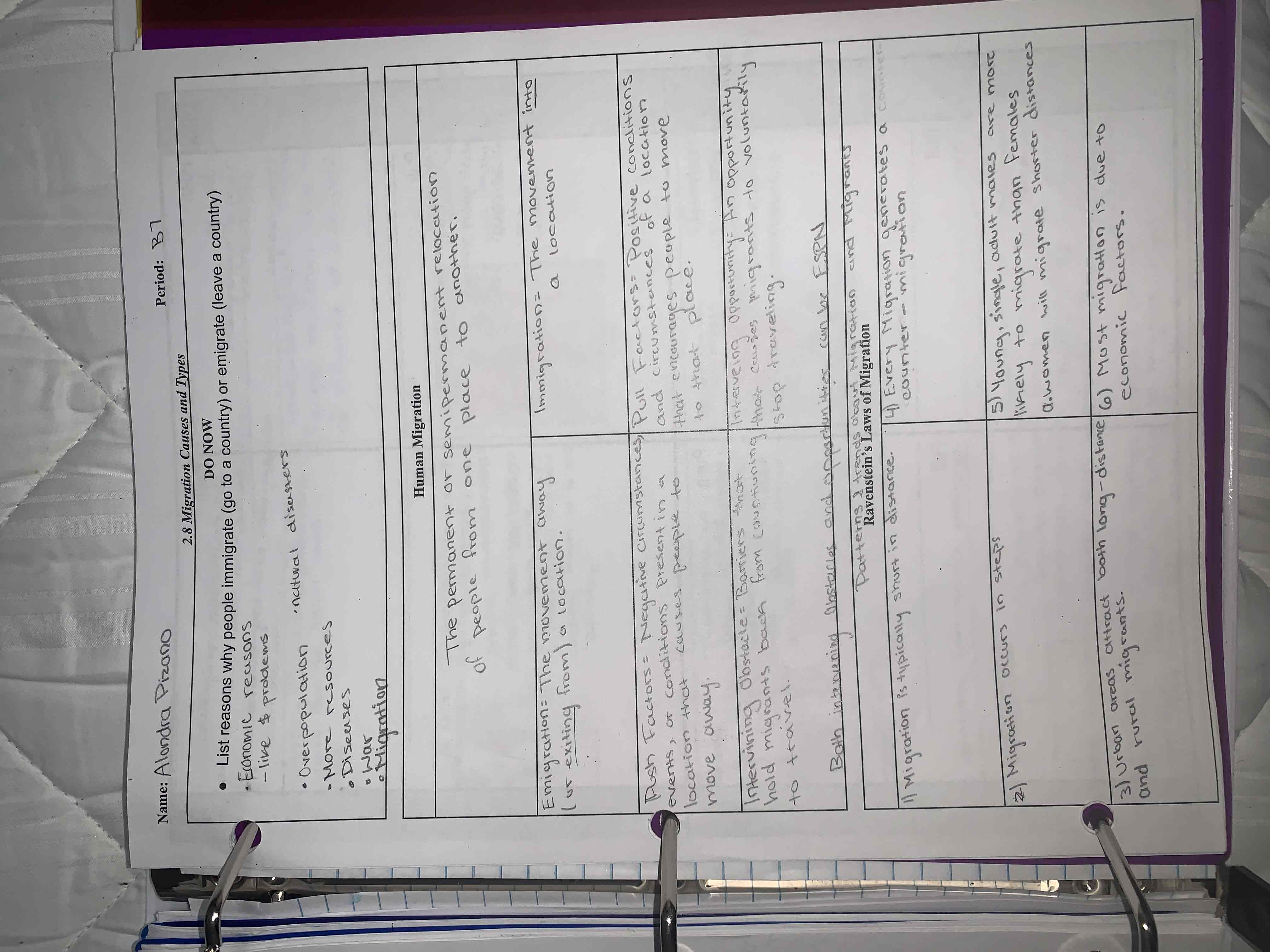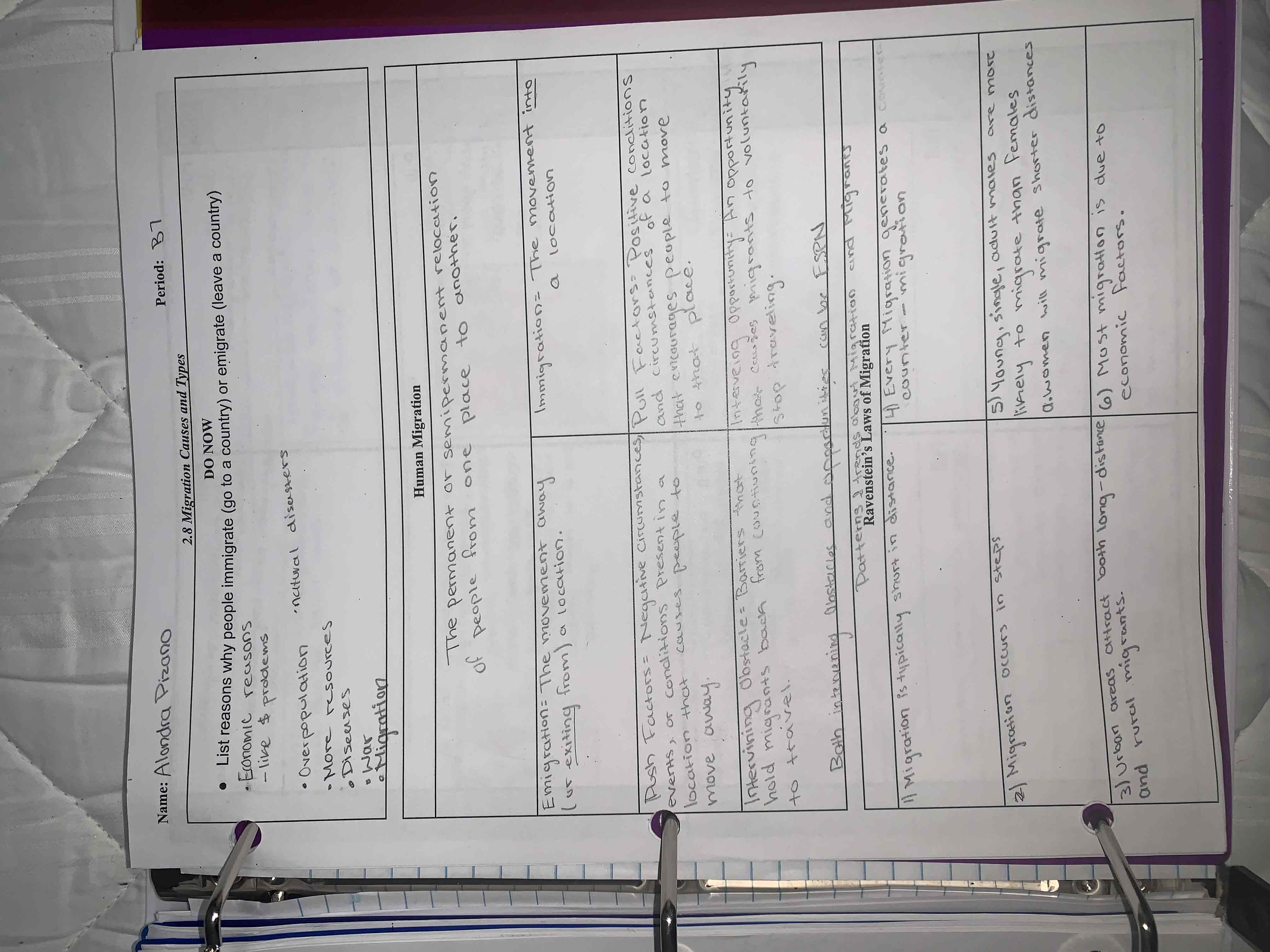Alondra human geo flash card
1/11
Earn XP
Description and Tags
Name | Mastery | Learn | Test | Matching | Spaced |
|---|
No study sessions yet.
12 Terms
What is the concept of sovereignty in AP Human Geography?
Sovereignty refers to the authority of a state to govern itself and make decisions free from external interference.
Define nation-state.
A nation-state is a political entity characterized by a defined territory, a permanent population, and a government, where the state's boundaries correspond to a certain cultural or national identity.
What is nationalism?
Nationalism is a political ideology that emphasizes the interests and culture of a particular nation, often in opposition to foreign influence.
Explain the role of geopolitics.
Geopolitics involves the study of the effects of geography on international politics and international relations.
What are the implications of boundaries in political geography?
Boundaries define the geographic limits of political entities, affecting governance, resource allocation, and identity.
Describe the concept of centripetal forces.
Centripetal forces are factors that unify and strengthen the bond within a state, such as a common culture, language, or economic system.
What are centrifugal forces?
Centrifugal forces are factors that divide or destabilize a state, such as ethnic tensions, political strife, or socio-economic disparities.
What is the significance of urbanization in development?
Urbanization is the process by which an increasing percentage of a population lives in cities, which affects economic growth, culture, and social structures.
Define cultural landscape.
Cultural landscape refers to the visible imprint of human activity on the landscape, shaped by cultural practices and beliefs.
What is devolution?
Devolution is the process by which central governments grant powers to lower levels of government, often resulting in increased regional autonomy.

